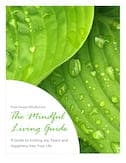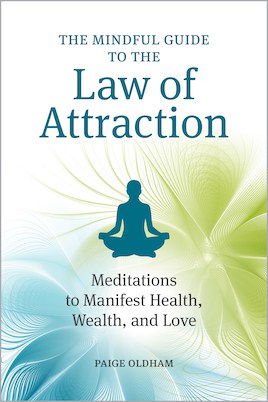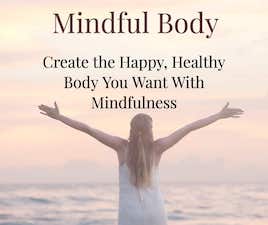The Problem
Would you like to:
- Start a new business or make some extra money on the side
- Write a book
- Master a hobby
- Learn a new skill
- Have more energy
But you just don’t have the time or energy?
Are you so drained at the end of the day after getting up early, dealing with traffic, working all day, taking care of kids, your spouse, cooking, cleaning, running errands and the million other things you do all day – with no time or energy to take care of yourself?
Do you struggle with trying to manage your time only to feel more stressed by your inability to do so?
I was too – until I ran an experiment on myself.
My husband and I were brainstorming ideas for a book and he suggested the topic of managing your energy. I thought it was a good topic and the more we discussed it, the more I realized how much I suck at it.
I waste a ton of energy stressing about what I’m not getting done which leaves me with little energy to get those things done.
My whole life I’ve bought into the concepts of time that were thrust upon society during the Industrial Revolution (back in the early 1900’s):
- The workday is 8 hours long, generally from 9 to 5.
- I must be “productive” during those hours (or some elusive “bad thing” will happen to me).
- I must work before I can play (or more “bad things” will come my way).
Other assumptions that I’ve lived most of my life by:
- I need 8 hours of sleep each night.
- I’m a morning person and can’t possibly stay up past 10pm on a consistent basis (normally I get up around 4:30am without an alarm clock).
- I can only work during normal working hours.
I never questioned these “rules.” Without realizing it, I lived by the clock, even when I didn’t have to.
I ran around all day, feeling like the ball in a pinball machine, endlessly bouncing from one thing to the next, never really going anywhere and feeling completely exhausted at the end of each day.
I spent much of my day stressing about all the things I wasn’t accomplishing because of all the minutia I felt I had to take care of. At the end of each day, the hours had slipped by and I was left asking myself, “What did I accomplish today?” and answering, “not much.” And feeling stressed and negative about the whole thing.
On top of that, my husband was reminding me of how little time we spend together with our jobs during the day and three little kids to take care of. I usually couldn’t keep my eyes open after the little ones’ bedtime.
Until I started my experiment.
The Experiment
My experiment was to:
- question all the “rules” I had been living by regarding time and time “management” (like we can actually manage time)
- notice how I spent my time all day
- most importantly: notice how I spent my energy all day
- see how much sleep I really need if I manage my energy differently
- stay up late to spend more time with my husband and work on my business
My results totally surprised me.
The Results
My initial struggle was to keep myself from stressing out about what I wasn’t accomplishing during “normal business hours.” (I’m very blessed to have a job where I work from home with a fair amount of flexibility.)
Every time I started thinking about what I should be doing, I would remind myself that I had the late night (between 10pm and 1am) to get things done. And this calmed me down.
I was able to be more present with my children and really focus on them. And it’s obvious that they have noticed this.
Now my husband and I have focused time together to connect. He tells me that my new schedule has allowed our 15 year relationship to grow much deeper and stronger.
By significantly reducing my stress during the day, I have much more energy at night. Something I always thought would be impossible for me.
I tested how much sleep I really need. Instead of the 8 hours that I always assumed, it’s actually more like 5 hours. Maybe that’s what happens as we get older (I’m 44) or what happens when we learn to live with the sleep patterns of our children (ours are 2, 5 and 7 years old).
I realized that there’s a huge difference in how tired I am the next day when I go to bed at 1am versus 2am (I’m fine with 1am and a zombie with 2am). My 2 year old still wakes me up around 6:30am every morning.
What I Learned:
Time Management = Time Wasted
Energy Management = Boundless Productivity and Happiness
Overall, I learned that my assumptions were just that – false assumptions. None of them held up to my experiment.
- By managing my energy (not stressing out all day, going with my body’s natural rhythms) instead of trying to manage my time (scheduling and worrying about what I do with each hour), I’m much more productive and have much more energy. There’s no internal judgment of the validity of my actions (i.e. how productive each one is).
- Trying to manage my time was actually stressing me out even more because I was trying to control my environment (impossible) to fit my arbitrary list of things to do. I wasn’t allowing for much flexibility. When was the last time your entire day went according to your plans?
- I do quite well staying up late on a regular basis.
- I can still fit in my daily yoga and meditation practice without getting up at 4:30am.
- It really doesn’t matter when I do my work. With technology, I can communicate with people at any hour. Emails and texts actually reduce the chat time that occurs on phone calls and in live meetings.
- I have more energy by not multi-tasking. By focusing on one thing at a time, I’m more relaxed and do a better job. When that one thing I’m focusing on is my kids or my husband, they really notice the difference.
- It doesn’t matter if I play before I work. Nothing bad ever happened. (Go for it! Have dessert before dinner!) We’re much more productive when we’re happy.
- All rules and assumptions are things we make up and can be changed.
On a cosmic level, we can’t manage time. It’s just a concept we created to help us organize our days.
All we can manage are our thoughts and actions which affect our energy. Without energy, we can’t do much.
What rules are you living by that don’t work for you?
How much energy are you wasting on trying to control your environment and stressing about not getting things done?
What big or little things can you change in your daily routine that would have a dramatically positive effect on your energy and productivity?
Question everything. There really are no rules.
Create the life you want: Combine the law of attraction with mindfulness
The law of attraction suggests that our positive or negative thoughts bring about positive or negative experiences. My latest book, The Mindful Guide to Law of Attraction, pairs that belief with the powerful practices of mindfulness. Through intentional breathing, writing, and engaging, you’ll hone a method for manifesting health, wealth, and love―the elements of happiness.
Let the law of attraction work for you by adopting its basic steps of identifying and visualizing the things you desire. Then use 45 practical meditation techniques included in the book to achieve awareness. By concentrating your positive energy on obtaining your wants, you’ll give yourself permission to receive them.
To your happiness! ~Paige

You can find this book at Amazon, Barnes & Noble, Books-A-Million, and Indigo.






 The Mindful Living Guide
The Mindful Living Guide




I agree with most of the points mentioned above. I think the most important tip is to set clear objectives. It’s very difficult to complete a task without knowing what actually you are doing.
Great post.
“Question everything. There really are no rules.”
This is *really* hard for me… I’m so psychologically bound by the lessons I learned growing up that I find this almost impossible. And yet, every time I’ve questioned those lessons I’ve found something wonderful waiting for me. Every. Single. Time.
Really enjoyed your thoughts behind this post. Cheers!
Hi Paige,
I wish i could focus on less sleep but need my 7-8 hours or I struggle.
You are right though. Each of us needs to find what works for us, and it should be about what we get done and not about how.much time we spend doing it. Time is one thing we don’t get back, so we need to use it wisely. That means prioritising what is most important and giving it our full attention in that moment. By single tasking with purpose we actually save time by accomplishing more, doing it right and not having to come back and do it again.
Absolutely, Keith! Prioritizing what’s important for US and not other people is critical to not feeling like we’re running around with our hair on fire. Then single-tasking with focus.
Thanks so much for your comment!
You bring into play a strong argument, Paige.
I believe that what most people lack is time-management in the sense that they don’t cherish the time they have. But, I don’t believe in the way the society nowadays view of time-management.
We see time-management as something to get more things done. Okay, that’s actually a good thing IF we have an idea why you want to get more things done. Most people when they try to manage their time, they rarely have an end-goal in mind. If they have, the end goals are usually defined by other people and not themselves. That’s the problem. and it’s a huge problem. Not being able to think for ourselves can bring a huge problem when we try to incorporate society’s tools(e.g. time-management) into our lives
People forget that the essence of time-management is to be thankful of our time and not just for the sake of being productive. Every seconds shouldn’t be wasted because well…you have limited time to do the things you want to do and it’s a shame if we’re not truly aware of that.
I love your perspective Wan! I agree that knowing what your top values and your “why” are is critical before tackling any project or goal. We’re so used to being reactive that we often forget that we have choices in how we spend our time.
Also, spending time on yourself to renew and regenerate isn’t selfish or wasteful – it’s critical in living a happy, productive life (however you want to define “productive”).
Thanks so much for your comments!
This is awesome. I’m all about trying to go against the rules society has made for us. I don’t believe in the 9-5 or the 40 hour or more work week. And although the post office is only open during certain hours, most things can be done at any time of the day or night, so you should do what works best for you.
When I started working at home, my husband still worked, so I’d just wake up when he got up. But since my husband started working from home, we started going to bed later and later and waking up later and later. Now, I’m not like you. I function at my optimal level if I get 9-10 hours of sleep at night. If I get 8 hours or less I’m a zombie. But I wasn’t getting any exercise because I just couldn’t get myself to do it later in the day. So I started waking up with my alarm clock again at 12pm instead of 1pm. The week I started doing that I became extremely more productive, and obviously healthier because I was getting some exercise. The other funny thing is that I worked less hours, but got the same amount of work done. Having that hour to wake up and exercise ended up making my entire day more productive and full of energy. Rather than sluggishly starting work right when I wake up, I’m giving myself that time to adjust into my day and get my blood flowing right away. I feel so much better. Now I just need to make sure I go to bed early enough to get enough sleep.
I guess my above paragraph might sound like I’m trying to manage time, but really I’m just managing myself and figuring out how I work best. And that’s what everyone should do. Figure out what works best for them 🙂
I completely agree with you Lisha! Everyone should experiment with what works for them. Yes, exercise definitely makes a big difference physically and mentally.
My husband pointed out to me some time ago that it’s much more important to learn how to manage our energy instead of managing our time. Work when you’re alert and energetic and rest or play when you’re not. Who cares what hour of the day or night it is?
Paige,
Working from home can be a killer, I have done it for about 15 years. There is always the guilt feeling that you should be productive 60 minutes in every hour.
What changed it for me was realising that I was much more productive than my colleagues anyway. They waste time talking about last night’s TV or football.
I really like your idea about energy management. It is a much more sensible way of working.
Thanks Chris! Even though the results of my experiment prove that it’s much more effective to manage energy, it’s been hard changing the habits that have been ingrained in me for a lifetime that say “work first, play second” and “be productive all the time.” I’m realizing that I have to redefine the term productive to mean “producing happiness” instead of “producing business or goal-driven results.”
Despite its challenges, I’ll trade office work for working from home any day!